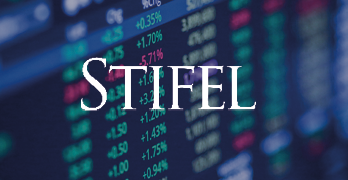BAI Index: Shanghai Reopening Likely To Push Rates Higher In June; Current Disruption Could Mean A Muted Peak, But Do Not Count On It

Sentiment over the past month, at least in investor circles, has been dour, owing to concerns about global recessionary pressure. Such concerns are not unfounded given broad inflationary pressure, geopolitical instability, worldwide food scarcity concerns, and pressures on consumer discretionary spending as a result of higher energy prices. Earnings reports from some of the United States’ largest retailers corroborated some of these fears and hinted at the first tangible signs of demand destruction. While there have been some signs of debottlenecking, supply chains remain in poor shape, with delays abundant and costs elevated. We have not seen a clear signal of a demand drop off in freight spot pricing just yet, although that is not to say it has not been masked by fuel, pandemic response, or other non-market-driven capacity restrictions.
On the Asia-to-Europe side, rates in May from Hong Kong (BAI31) and Shanghai (BAI81) were approximately 30% and 50% higher than the same period in 2021. Rates touching North America were more muted, but still up 11% and 6% y/y from Hong Kong (BAI32) and Shanghai (BAI82), respectively. Adjusted for fuel prices, which are up more than 100% y/y, we estimate that core pricing is down year over year.
For example, absolute airfreight pricing was quite stable on core Asia-based lanes during the month of May. Spot prices continues to exceed last year’s record levels, through the noise of Russian and Ukrainian air space restrictions and Chinese Covid-19 lockdowns. On the Asia-to-Europe side, rates in May from Hong Kong (BAI31) and Shanghai (BAI81) were approximately 30% and 50% higher than the same period in 2021. Rates touching North America were more muted, but still up 11% and 6% y/y from Hong Kong (BAI32) and Shanghai (BAI82), respectively. Adjusted for fuel prices, which are up more than 100% y/y, we estimate that core pricing is down year over year.
While still too early for airfreight peak season, we think it is likely that orders get pulled forward this year as retailers try to avoid disruption leading into the back-to-school season and the holidays. So while the next few months could see a flurry of activity, it is also possible that stakeholders will see a more muted peak, all else being equal.
As China takes some of its biggest steps toward reopening major cities, we expect rates to climb again over the next month. With Covid-19 cases declining in Shanghai, for example, the city is entering its final stages of reopening, which is expected to carry through mid-July, and we anticipate that the significant backlog will be cleared through origin port and airport facilities. While still too early for airfreight peak season, we think it is likely that orders get pulled forward this year as retailers try to avoid disruption leading into the back-to-school season and the holidays. So while the next few months could see a flurry of activity, it is also possible that stakeholders will see a more muted peak, all else being equal. Will that mark the end of one of the longest airfreight bull pricing cycles in history? At this point, we think it is difficult to say, especially with the industry still in crisis management mode. Pricing will normalise, especially as we think about the continued recovery of international belly capacity and a robust long-term order pipeline for freighters. However, the timeline will likely be protracted and shippers are well-advised, in our view, to manage toward resiliency versus freight spend efficiency, at least for now.
About Bruce Chan, Director & Senior Analyst, Global Logistics & Future Mobility Equity Research, Stifel
Bruce Chan joined Stifel in 2010 and is based out of the Miami office.
Bruce Chan can be reached at chanb@stifel.com. Opinions expressed are subject to change without notice and do not take into account the particular investment objectives, financial situation or needs of individual investors. For more information and current disclosures for the companies discussed herein, please go to the research page at www.stifel.com.
©2021 by J. Bruce Chan.